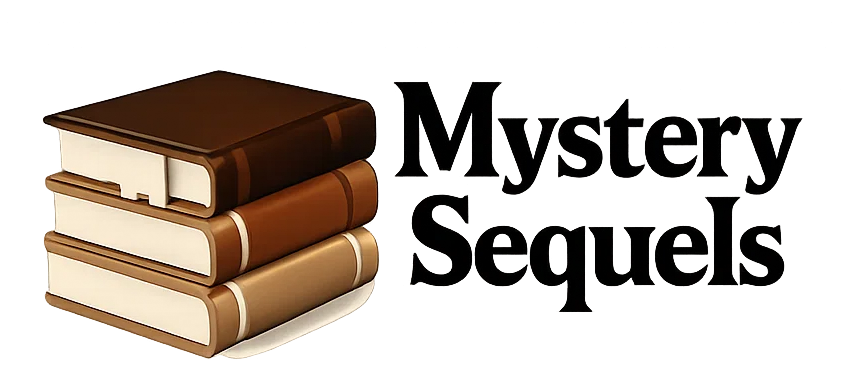Interview With Author James Irving
The mystery genre provides a template on which to expand on my adventures as a PI and also as a young trial lawyer.
James V. Irving is the author of the Joth Proctor Fixer mystery series featuring a criminal defense lawyer who finds himself taking cases that others rather avoid. In today’s interview, James Irving shares with us what it’s like to write mystery books that draw from his rich professional background.
While at night he is engaged in writing stories about his favorite character, Joth Proctor, during the day he is a successful attorney and partner in a prestigious Northern Virginia law firm.

Tell us about your first book, Friends Like These
When Holly is found dead of an apparent drug overdose, both Sully, her estranged husband, and Paul, her brother, claim the developable real property she had owned. Joth – Sully’s best friend and Paul’s college teammate – is caught in the middle. Sully and Paul are both down on their luck and one of them is about to become very wealthy.
Both are willing to lie and cheat to get the property, and when people start turning up dead, we wonder what else they are capable of.
Book two is also out now; give us a rundown of Friend of a Friend
Halftrack Racker, a former lacrosse All-American, runs a shady but successful investment business. Joth guides him through legal scrutiny in a case that pits Joth’s personal standards against his ethical obligations.
Proctor’s success only emboldens Track’s dark side. In the end, Joth must not only decide what justice requires but implement it as well.
Tell us about Joth, the protagonist in your series. How did this character come about?
Joth Proctor is a former college lacrosse player who seemed on the fast track to success until his life and career were derailed by a failed romance. The woman who rejected him, Heather Burke, is now the county’s top prosecutor, whom he must repeatedly deal with in his professional life.
He is a talented trial lawyer who lacks the knack of attracting business and who lives in a world where the line between right and wrong is not always clear. Consequently, he finds himself taking cases that other lawyers would avoid. These cases often push up against an ethical line that his clients are ready to cross. In this environment of colorful, ethically challenged characters, Joth tries to discern and do the right thing.
How much of yourself did you put into him?
There are a number of superficial similarities between Joth and myself. We are both from Massachusetts, we both went to UVA, we played the same sport, and we’re both lawyers, but that’s where it begins and ends. As I developed Joth as a character, I wanted to start with a familiar framework and these basic touchstones helped me to maintain a feel for him as I thought through who he is and why.
Joth lives a life consistent with his own character and personality. I don’t think I’d get myself into the predicaments Joth does, but I’m also not sure I could get myself out.
Tell us about yourself – you have a very colorful resume with some interesting professions.

I graduated from college with an English degree and then worked for two years as a private detective. I suppose I saw the fictional possibilities from the first time I followed a car.
The detective’s life is often grim and sometimes dangerous, but there are enough unexpected twists and turns to make you believe anything is possible.
I’ve always felt that the best days for a PI are more satisfying than the best days for a lawyer. The mystery genre provides a template on which to expand on my adventures as a PI and also as a young trial lawyer.
Why did you decide to make the Joth Proctor adventures a series as opposed to a standalone mystery?
I was fortunate to develop a series of a half dozen characters with complex inter-relationships. Their lifestyles and occupations bring them into regular contact with each other and naturally result in a kaleidoscope of alliances, friendships, resentments, and rivalries. These unresolved and ever-changing tensions seemed like a natural template for a series.
Will each book in the series stand on its own, or were they planned to be read in publication order?
The first, Friends Like These, is a stand-alone book. It serves to introduce the characters and circumstances of the Joth Proctor stories while presenting a one-off tale of greed and loyalty. Chronologically, Book 2 (Friend of a Friend) picks up immediately after the close of Book 1 but pursues a distinct storyline.
Books 2, 3 (Friend of the Court) and 4 (working title: Friend in Need) are presented as a continued tale wherein the challenges developed at the end of the previous book are addressed and resolved as part of the plot of its sequel.
What kind of research do you do when planning a new book and how long do you devote to researching?
Most of these stories arise from my personal experiences as a young trial lawyer and as a private detective before that. I understand both these professions but have examined the extent to which changing circumstances modify how things were done when I did them. I’ve also heavily fictionalized the tales, which has required some hands-on participation – although I’ve left outright breaches of the law to my imagination.
I don’t find this to be a tremendous time commitment because these stories depend on human motivation, which I believe to be constant, understandable. People don’t change and these are books about people.
How did publishing the first book change your process of writing?
Because I had a three-book deal, it increased my focus and my priorities, but my time and personal commitment to these characters and their stories were strong to begin with.
Do you have any earlier unpublished novels that you hope to release at some point?
Yes, including one that strays far from the detective/crime fiction genre. The Price of Fish is about a New England fishing family and their community, and the personal and legal challenges they face and strive to overcome.
What are some of your favorite mystery stories/authors?
Novels in the mystery or crime genre fall into two broad categories: the whodunits of the Agatha Christie/ Arthur Conan Doyle school, and the gritty, noir-esque type of novel pioneered by Dashiell Hammett and Raymond Chandler. Having been a PI, I prefer the latter. For my money, you still can’t beat the larger-than-life characters and history-tinged plotting of The Maltese Falcon. The Big Sleep by Chandler and the Travis McGee novels of John D. MacDonald never get old.
Why do you feel it is important to give fans a sequel?
Sequels are what create fans. Complexities of character are better developed and revealed through a continuing story. Changing but related circumstances can create a world that readers feel familiar with, and characters they can invest in. I’ve tried to create a nuclear set of characters, not all of whom are critical to every book, but all of whom come and go and remain integral to the series.
These include chief prosecutor and former love interest Heather Burke, gambler and career criminal Jimmie Flambeau, DP Tran, the unlicensed private detective who is Joth’s landlord, and Irish Dan Crowley, who runs the local gentleman’s club.
Many people say that sequels sometimes ruin a great first book or film. Do you have a sequel you absolutely love that proves this theory wrong?
Godfather II remains the gold standard for sequels in my opinion. It works because of the continuity of characters and the existence of unresolved storylines from the original. As with the Godfather movies, I’ve tried to develop a series of characters with complex and intertwined relationships that develop and change as the story unfolds.
Several authors mentioned that one thing they are most afraid of in their journey is writer’s block. Do you believe in writer’s block?
The challenge for me is not the occasional barrier to the process of writing, but to writing well. When that happens, I simply step back to a more elementary level of story-telling – outlining what I’m trying to say in general terms, then filling in the details as they are revealed by this process. That almost always primes the pump.

What advice can you give aspiring writers and what do you wish you absolutely knew before writing your first book?
Aspiring writers should honestly answer the question: why do I want to do this? Creative writing is an arduous and often thankless process that requires discipline and constant commitment. When I understood that I was writing not so much to be published but because I loved to create characters and explore how they respond to various circumstances and pressures, the day-to-day grind became both simpler and easier.
If you don’t love to do it, you should probably try to find some other form of self-expression.
What can we expect from you and Joth next?
The third book – Friend of the Court – is due out before the end of the year. Heather Burke, Jimmie Flambeau, DP Tran, and Irish Dan all return, along with several new characters who bring Joth fresh complications and challenges. In Friend of the Court, Heather will face a crisis that threatens not only her career but also her personal life. Only Joth can help her – if he understands the problem before it’s too late. I think I can guarantee a thrilling ride.
For more information about his books, visit https://www.jamesvirving.com/






